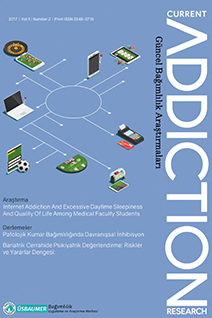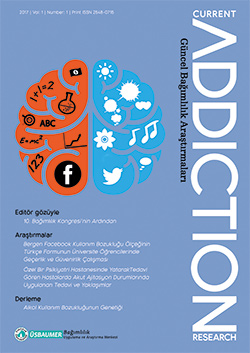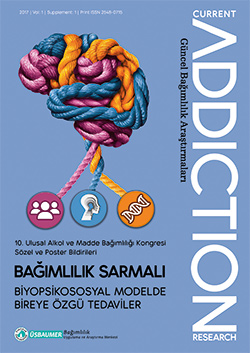Years
2025
Categories
Authors
ARTICLES
Review Article
Abdullah TÜRKMEN
2025, 9(1), s:31-52
In recent years, addiction research has emphasized that substance use behavior should not be understood solely through biological mechanisms, but rather through multidimensional frameworks that include psychosocial and cultural variables. The aim of this review study is to comparatively examine the impact of addiction theories on Turkish individuals living in Turkey and Europe, with attention to their sociocultural contexts. The study was designed as a qualitative meta-analysis, and a systematic review of publications from 2010 to 2025 was conducted using databases including ULAKBİM, DergiPark, Scopus, and Web of Science. Selected studies were analyzed through theoretical frameworks such as Cognitive Behavioral Therapy (CBT), Social Learning Theory (SLT), psychodynamic, and biological models. Thematic analysis indicated that addiction in Turkey is primarily shaped by cultural norms and social learning processes, whereas Turkish immigrants in Europe are more affected by factors like discrimination, language barriers, and identity conflicts. Group therapy and culturally adapted interventions have been found to offer sensitive and effective responses to these challenges. The findings underscore the necessity of developing culturally sensitive clinical models that integrate dynamics of identity, belonging, and social exclusion.



 2. Sayı
2. Sayı
 1. Sayı
1. Sayı
 Ek Sayı
Ek Sayı







